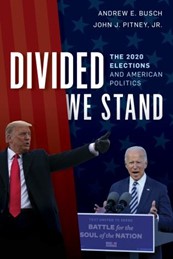For most of the election cycle, Democratic strategists were optimistic they could hold the House because of their arsenal of opposition research. But Democratic attacks failed to bring down enough Republican challengers to keep the majority.
Democrats thought GOP challengers were simply too flawed to be acceptable alternatives to voters who wanted change. But as Republicans learned in 2006 and 2008, the messenger and the audience matter just as much, if not more, than the message when it comes to political attacks.
“If you were in a red district, nothing worked,” according to one veteran Democratic strategist, reluctantly recalling the most recent elections.
...
Good campaign or not, the nature of the district appears to be the best indicator of whether an attack will stick in a national election.
In Pennsylvania’s 10th district, former U.S. Attorney Tom Marino struggled to raise money and was hounded by Democrats and the media for his connection to a convicted felon.
But the Republican was running in a district that McCain won by 9 points and had the luxury of a cheap media market where the NRCC could come in heavy with TV advertising. Marino defeated Rep. Christopher Carney by 10 points, even though his negatives were higher than the Democratic Congressman’s.
Democrats lost the House, but they don’t think the conversation is over. Case in point: A judge delayed a hearing that was scheduled for next week about Scott’s divorce records, an issue Democrats have tried to keep on the radar screen for reporters.
“For the most part, voters did not take a close look at the Republicans they elected — and in turn, there are numerous new Members with long records of reckless positions and questionable behavior that we will be able to exploit over the next two years,” said Jon Vogel, executive director of the Democratic Congressional Campaign Committee.
A blast from the past. On September 10, 2006, Jim VandeHei and Chris Cillizza reported in The Washington Post:
Republicans are planning to spend the vast majority of their sizable financial war chest over the final 60 days of the campaign attacking Democratic House and Senate candidates over personal issues and local controversies, GOP officials said.
The National Republican Congressional Committee, which this year dispatched a half-dozen operatives to comb through tax, court and other records looking for damaging information on Democratic candidates, plans to spend more than 90 percent of its $50 million-plus advertising budget on what officials described as negative ads.
The hope is that a vigorous effort to "define" opponents, in the parlance of GOP operatives, can help Republicans shift the midterm debate away from Iraq and limit losses this fall. The first round of attacks includes an ad that labeled a Democratic candidate in Wisconsin "Dr. Millionaire" and noted that he has sued 80 patients.


